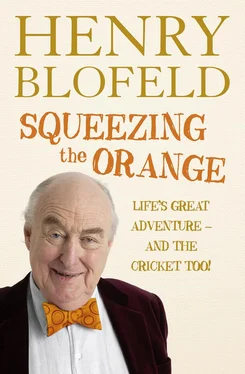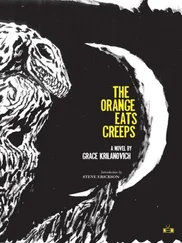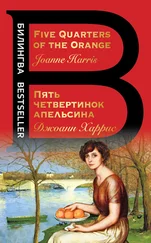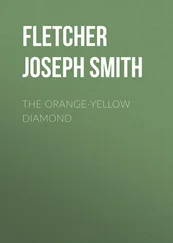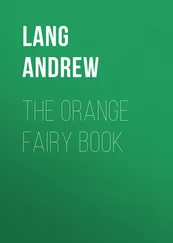I caught the train up to London, and changed into a white tie and tails at my brother John’s mews cottage. But as soon as I turned up at the appropriate house and met the rest of the party, which was full of dashing cavalry officers and a fair sprinkling from the Brigade of Guards, I realised that any hopes I might have had in the direction of the beautiful deb had disappeared weeks ago. Anyway, off we all went to the Grosvenor House in Park Lane, where we danced a good deal of the night away. Eventually I bade farewell to all concerned and legged it to Liverpool Street station to catch the milk train back to Cambridge before taking on the might of Kent that same morning. As luck would have it, the first person I ran into on the platform was Ian McLachlan, who was being rested for the Kent game and who had also been to Queen Charlotte’s. As he was a good friend of Ted Dexter’s, the news of my nocturnal progress soon got about. Sod’s law again.
I took a taxi back to my lodgings, and after the briefest of lie-downs before a hurried bowl of Corn Flakes, I pedalled my way to Fenner’s in the hope of greater success than I had achieved at Grosvenor House. Dexter and Colin Cowdrey tossed, and we were batting, which was not quite the way I had planned things. Shortly before half past eleven, therefore, I was making my way, horribly nervously, to the crease as one of the openers. I don’t think I took the first ball, but very soon I was down at the business end preparing to face Alan Brown, a tall, blond fast bowler. I managed somehow to survive my first ball. The second was short, and lifted on me. I followed it up in front of my face, and it hit the splice of the bat and dollied up to give forward short leg the easiest catch in the history of cricket. I shuffled miserably off to the pavilion, and as I passed Cowdrey at first slip he said, ‘Bad luck,’ in the kindest of voices. It was no help. In the space of approximately fifteen hours I had played two and lost two. So much for youthful optimism. I would always have lost at Grosvenor House, but who knows, I might have made a better fist of things at Fenner’s. Some time later, I wondered if I might have hooked that ball if it had not been for my bang on the head. I made one in the second innings. What a start.
I opened again in the next game, against Lancashire, and somehow managed to put on 78 with Dexter for the second wicket. I spent my time at the non-striker’s end jumping out of the way of his thunderous straight drives, and at the other end playing and missing or edging the ball just short of the slips. Eventually, having made 41, I missed a low full toss from off-spinner Roy Tattersall which hit the outside of my leg-stump. Lancashire were captained by Cyril Washbrook, and their attack consisted of Brian Statham and Ken Higgs with the new ball, while the spin was provided by Tattersall and the left-armer Malcolm Hilton, who as a beginner in 1948 had famously dismissed Bradman. I faced a few overs from Statham, bowling almost off the wrong foot, and I don’t think he sent down a single ball I could leave alone. His accuracy was of course legendary, and at that time he and Fred Trueman formed one of England’s greatest pairs of opening bowlers.
A week or two later I was out first ball to the examiners, but as this was only a college exam and not part one of the tripos or anything particularly serious, King’s looked benevolently upon me, and I was not shown the door. After that I wiled away the summer working on the first floor of Simpson’s in Piccadilly. There was one moment of excitement, which proved to be a false dawn. The university were on tour, playing various counties before the University Match, and I received an SOS to go to Guildford and keep wicket against Surrey. I was mean-spirited enough to hope that Chris Howland had perhaps broken a finger, but when I clocked in at the Hog’s Back hotel I discovered that he was merely having a game off. So four days later I was asking Simpsons for my job back and it was Daks trousers and cashmere jackets all over again. I never quite got the hang of the measuring tape, but I was not too bad at the chat, which just about got me by.
I played a bit of cricket for Norfolk, without much success, before beginning my second year at Cambridge. Towards the end of the summer term I had arranged to move lodgings to a house at 3 St Clement’s Gardens, which was run by an elderly landlady called Agnes Smith, who must have been the best of her sort in the whole of Cambridge. Her cooked breakfasts were magnificent, her kindness, enthusiasm and humour simply remarkable, and she had a wonderful, chuckling laugh. One of my companions there was Christopher Mallaby, who went on to reach spectacular heights in the diplomatic profession: his last posting was as our man at the amazing embassy in Paris. Another benefit of St Clement’s Gardens, which didn’t altogether please my bank manager, was that it was just around the corner from the Pitt Club.
My second year was much more fun than my first, especially as far as the social whirl was concerned. As a result my overdraft increased inexorably, which irritated Tom, who found it difficult to understand how I could not live within the slender means he allowed me. We had a number of lively conversations on this subject. Academically, little had changed. My distaste for lectures grew worse, and alas, I did not work hard enough to get by. I did a bit better against the examiners, surviving almost a complete over and scoring what was known as ‘a Special’, which meant guilty unless there were extenuating circumstances. King’s made it clear that if I returned for a third year I would not be allowed to play cricket until after the exams, which didn’t seem much of a bargain to me. I turned it down, and had a sorrowful letter from John Raven, the college’s dark, angular, friendly, bespectacled head tutor, saying that perhaps it was time I moved on to the next stage in life – without attempting to specify what that might be.
By then, however, I had had one piece of great good luck. Cambridge was not as good a side in 1959 as it had been the year before, and I just managed to squeak in as one of the last two choices. I was probably the worst opening batsman to play for either Cambridge or Oxford since at least the Boer, and probably the Crimean, War. It was the most exciting experience though, and in a funny way the best education I could possibly have got when you consider what I was going to be doing for most of the rest of my life.
My two greatest memories of the cricket came when the home season at Fenner’s had ended. We went on tour, and late in June we arrived at Trent Bridge to play Nottinghamshire in a Saturday–Monday–Tuesday game; there was no play on Sunday in those days. Nottinghamshire were captained by Reg Simpson, who had opened the batting many times for England, and was a fine player of fast bowling. In order to try to drum up some interest in a game which was otherwise pretty small beer, Reg had got hold of Keith Miller, the great Australian all-rounder, to come and play as a guest star. He had retired three years earlier, and was now writing about the game for the Daily Express . He would prove to be one of the greatest men I ever met in the world of cricket, and we remained good friends until he died.
This must have been Keith’s last or last-but-one first-class match. We batted first, and he opened the bowling, slipping in some quickish, almost humorous, leg-breaks in the first over. I faced a couple of them. He then made a hundred in Nottinghamshire’s first innings, thanks partly to the fact that I dropped him off a skier at deep midwicket when he was on 65. There was nothing remotely solemn about his approach or his strokeplay. He hit the ball murderously hard, and talked happily away to everyone throughout his innings. More than forty years later I came across a completed scorecard from this game, and when I asked Keith to sign it, he scrawled across it without any prompting, ‘Well dropped, Henry.’
Читать дальше
